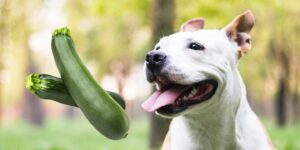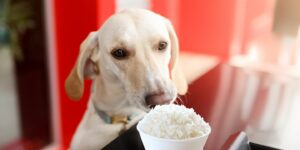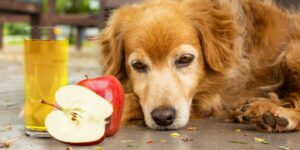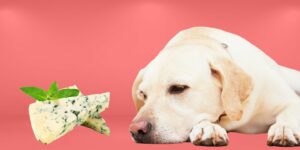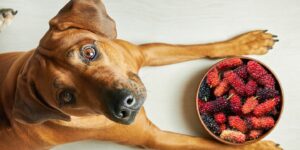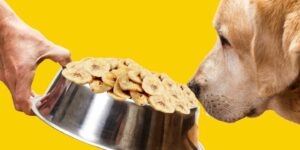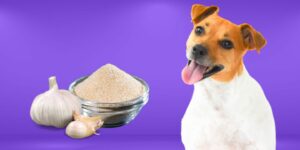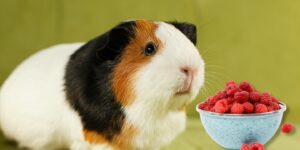The short answer to the question, "Can dogs eat Cheez-Its?" is no, dogs should not eat Cheez-Its. While the snack itself is not toxic to dogs, it is not particularly healthy for them and can cause digestive problems if eaten in large quantities. A balanced diet is crucial for a dog's overall health and wellbeing, and feeding them human snacks may do more harm than good.
Ingredients in Cheez-Its
Cheez-Its are made with a combination of flour, cheese, and vegetable oil. Each of these ingredients can pose potential issues for your dog's health.
Flour
Potential issues with gluten
While most dogs can tolerate small amounts of gluten, some may have a sensitivity or allergy to it, causing digestive problems or skin irritations.
Cheese
Lactose intolerance in dogs
Dogs may be lactose intolerant, which means they have difficulty digesting lactose found in dairy products like cheese. This can lead to gastrointestinal issues such as gas, bloating, and diarrhea.
Vegetable oil
Unhealthy fats
Vegetable oil, especially in large quantities, can contribute to your dog's fat intake and lead to weight gain and other health issues.
Sodium
Risks of high sodium intake
Cheez-Its are high in sodium, which can be harmful to dogs if they consume too much. This can lead to dehydration and strain on the kidneys.
Nutritional Concerns
Feeding your dog Cheez-Its can lead to several nutritional issues.
High calories
Impact on weight management
Cheez-Its are high in calories, which can contribute to weight gain in dogs if they're not properly managed in their overall diet.
Excess sodium
Dehydration and kidney issues
The high sodium content in Cheez-Its can lead to dehydration and put extra strain on your dog's kidneys, especially if they're susceptible to kidney problems.
High fat content
Risks of pancreatitis
Feeding your dog Cheez-Its regularly can contribute to high fat intake, which can lead to pancreatitis, a painful and potentially life-threatening condition.
Signs of Overconsumption
If your dog has eaten too many Cheez-Its, they may experience the following symptoms:
Gastrointestinal issues
Upset stomach
Diarrhea
Vomiting
Dehydration symptoms
Increased thirst
Dry nose and gums
Sunken eyes
Pancreatitis symptoms
Abdominal pain
Lethargy
Loss of appetite
What to Do If Your Dog Eats Cheez-Its
If your dog consumes Cheez-Its, take the following steps:
Contact your veterinarian
Inform your vet of your dog's consumption and any symptoms they may be experiencing.
Monitor your dog for symptoms
Keep an eye on your dog and watch for any signs of gastrointestinal issues or dehydration.
Provide water and bland diet
Ensure your dog has access to water and consider feeding them a bland diet to help settle their stomach.
Healthy Snack Options for Dogs
Instead of Cheez-Its, consider giving your dog these healthier options:
Fruits and vegetables
Safe options
Apples, blueberries, carrots, and green beans are all great choices.
Foods to avoid
Keep your dog away from grapes, raisins, onions, and garlic.
Cheese in moderation
Appropriate types and amounts
Small amounts of low-fat, low-sodium cheese can be a tasty treat.
Dog-friendly treats
Store-bought options
Look for treats made specifically for dogs at your local pet store.
Homemade recipes
Try making your own dog treats using dog-safe ingredients.
Tips for Responsible Snacking
Follow these guidelines when giving your dog treats:
Portion control
Only provide your dog with small portions of any treat to avoid overfeeding.
Consulting with your veterinarian
If you're unsure about a snack, consult with your veterinarian before giving it to your dog.
Balancing treats with daily caloric intake
Ensure treats are accounted for within your dog's daily caloric intake, so they remain in a healthy weight range.
Conclusion
In conclusion, while dogs can technically eat Cheez-Its without suffering immediate harm, they are not a healthy choice for a dog's diet. It's best to stick to healthier options or treats specifically designed for dogs. Remember to only give your dog small amounts of any treats and consult with your veterinarian if you have any concerns.



